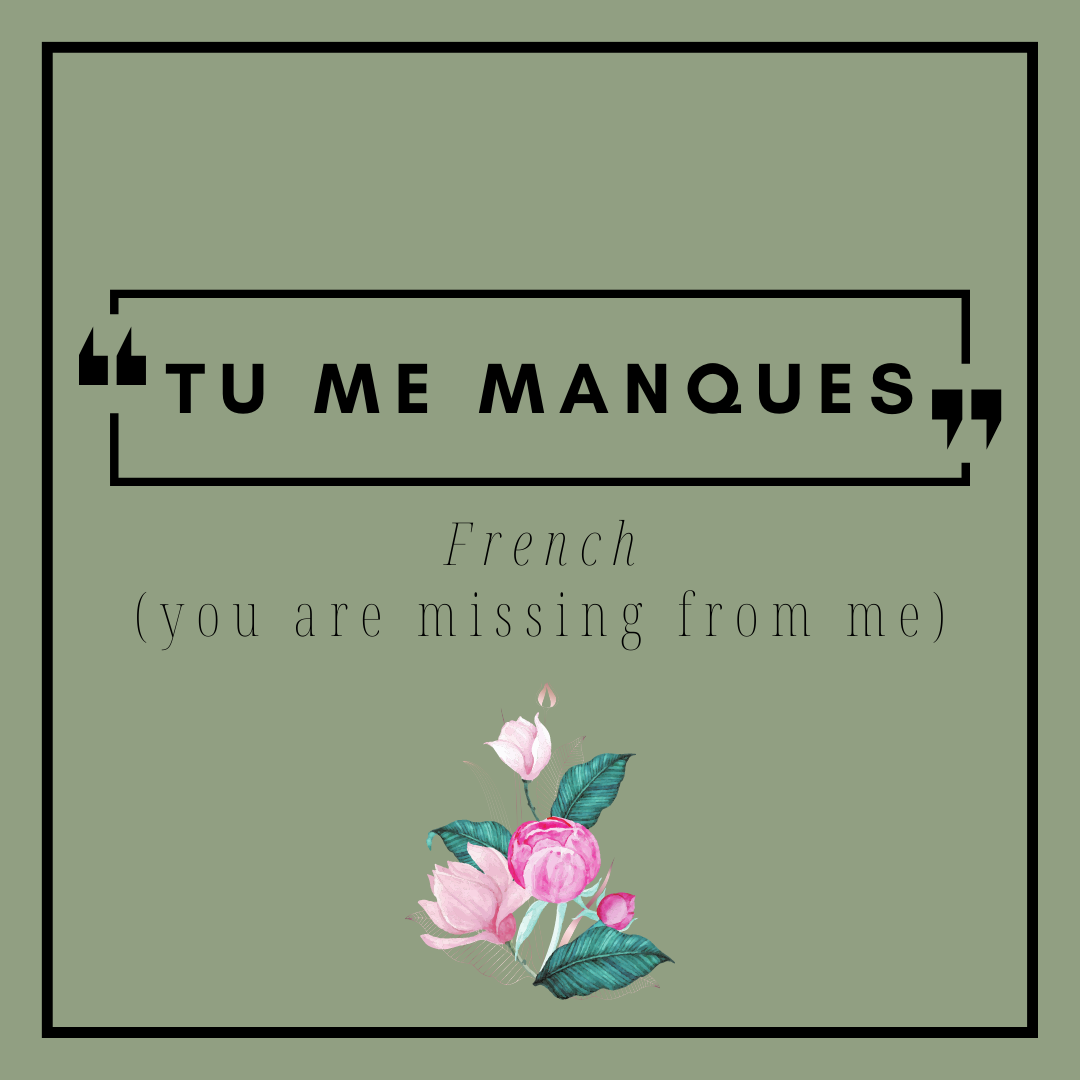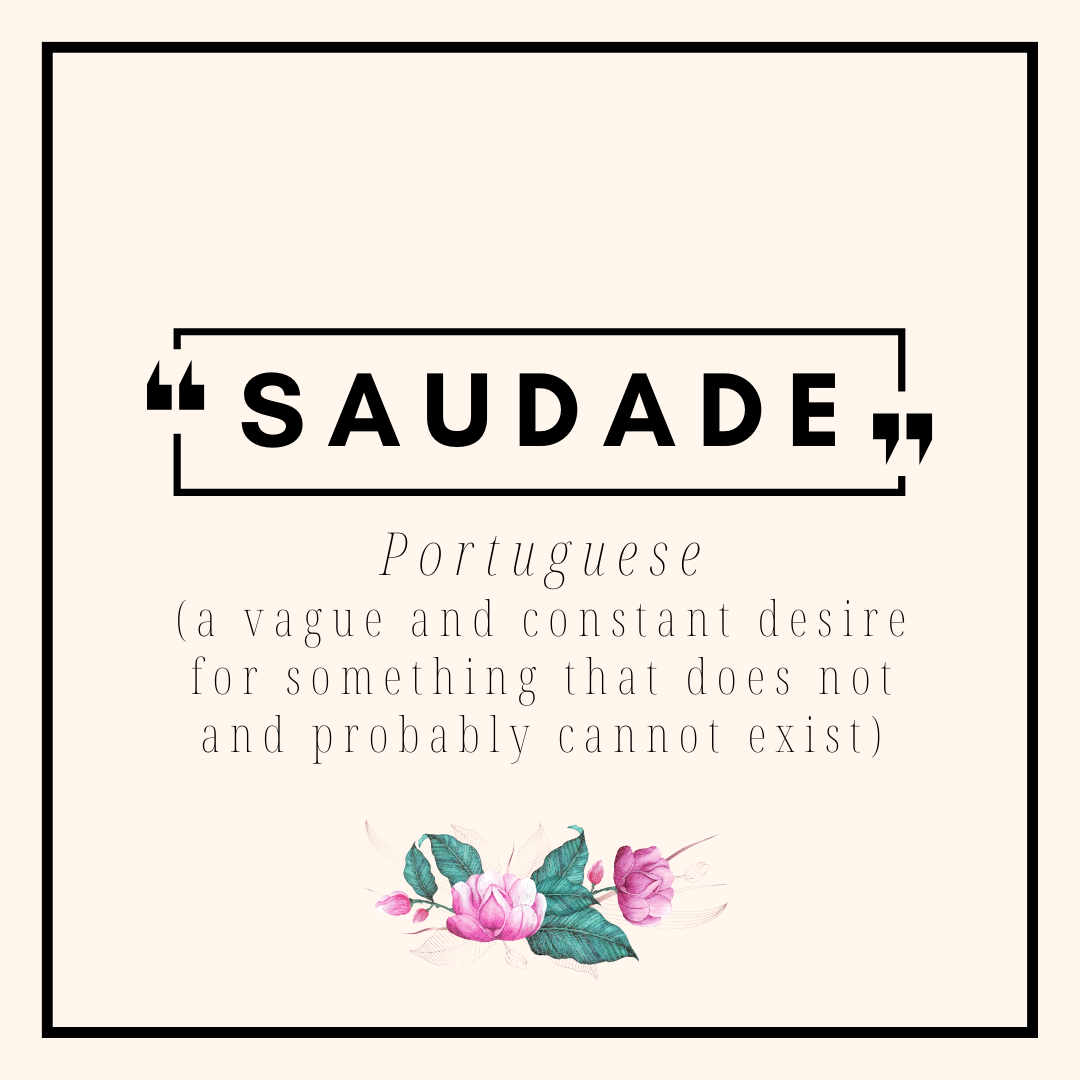Express Yourself
Ahhh English, one of the most popular languages globally and a language that I am fortunate enough to speak natively. According to the Oxford English Dictionary, an estimated 171,146 words are currently in use in the English language, and roughly 47,156 obsolete. The average native speaker of any language retains and uses roughly 20,000-30,000 words. There are still some emotions that are better described with languages other than English for all of that. During a weekend trip with my partner, I became more aware of all the words we commonly use that are not English. Below is a list of six of the most common ones.
I first heard this word in a NPR story. A women was referring to the beautiful Persian word that her father uses to talk to her mom. Nafas means ‘my breath’ as in you are my breath and I can not breathe when you are away. It is so beautiful and deeply emotional for those moments where love wells up inside of you.
Over the past 10+ years, I have spoken Russian at various levels. Drinking is famously part of the Russian culture and there are 15 words that come to mind for the various levels of drinking you are doing. I ran across this gem while building up my Russian language Pinterest board. Nedoperepil refers to that experience - in the past - of drinking more than you should but less than you could have. In English, it’s that moment where you decide to set the keys down and call an Uber because it’s safer than you driving. It’s that grey space between tipsy and drunk.
How better to describe the feeling of being apart from the one you love. Similar to Nafas it expresses that deeper feeling that something - or someone - is truly missing. While it translates as “I miss you” the literal translation is “You are missing from me”. You are vital to my existence like my breath and are a part of me like my blood. It’s no wonder that French is the language of love.
This was a beautiful gift from my mother. After my family suffered a tragic loss, we were left trying to find the words to describe our feelings to each other and ourselves. My mom found this one online, and it perfectly encompassed how we felt. The Portuguese word Saudade is tough to translate into any other language. Aubrey Firz Gerard Bell attempted to define Saudade in his 1912 book In Portugal, “Saudade is a vague and constant desire for something that does not and probably cannot exist, for something other than the present, a turning towards the past or towards the future; not an active discontent or poignant sadness but an indolent dreaming wistfulness.” The Brazilian writer Miguel Falabella encompassed all the feelings of Saudade in his poem on the word.
“Saudade for a brother who lives far off.
Feeling Saudade for a childhood waterfall.
Sensing Saudade for the flavor of fruit never to be found again.
Again Saudade for the father who died, for the imaginary friend who never existed…
Saudade for a city.
Saudade for ourselves, when we see that time doesn’t forgive us. All these saudades hurt.
But the Saudade that hurts the most is the one for someone beloved.
For their skin, their smell, their kisses.
For their presence and even their agreed-upon absence.”
I ran across this idiom in a book on untranslatable French words and phrases. Literally this means “It’s the foot”. In old French slang, le pied referred to one’s share or due. Thus the phrase C’est le pied referenced the sharing of one’s loot which was always a good thing. Nowadays it is used to say something is great. For me, I like to use this after a really great meal shared with friends.
I absolutely love this word. Have you ever been putting up a frame on the wall, and you can tell where the center is? Then this is you! The Russian word Glaz means eyes, and the word Glazomer is a noun for that ability measure with just your eyes. I use this word 100 times every time we move and are redecorating our home. I can find the center on almost any wall, and my partner insists on measuring it. After the measurement proves my initial measurement, I use this word to remind him of my “superpower.”
What beautiful words do you have in your language? Do any of these really speak to you? The more words I add to my vocabulary, the better I can express myself. There is something so calming knowing that there is a word for how you are feeling to remind us that in this big world, we are never alone.







